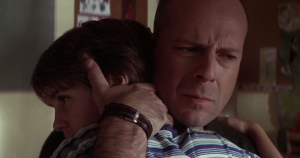Wrapping Up One Event, Announcing the Next
We’re wrapping up Autism on the Page, and announcing our next exciting event—a week of posts focusing on representation of mental illness.
We’re wrapping up Autism on the Page, and announcing our next exciting event—a week of posts focusing on representation of mental illness.

“I learned absolutely nothing from Rachel’s leukemia,” this book’s protagonist starts off in its in-universe foreword, and I grinned and said, “YES! This is going to be good.”

Although Kurt’s character seems to largely exist to serve the central romance, I was pleasantly surprised by how many pitfalls Perkins avoided in a wonderfully understated manner. Various assumptions and tropes were casually turned over with a single line here or there.

It’s a rare occurrence when an author can update an already published book, and even more rare when that update includes a huge overhaul of the portrayal of an autistic character. Alyssa Hillary takes a look at both the original and updated version in this review.

We’re happy to have a chance to chat with Marieke Nijkamp—WNDB VP of finance, autistic author, and previous Disability in Kidlit contributor—about her work and autism in literature.

The Categorical Universe of Candice Phee is a fun, well-written book, if an imperfect autism read.

Rogue is one of the rare novels about an autistic character written by an autistic author, and the book raises many intriguing questions to discuss.

Autistic people learn, change, and cope like anyone else. However, when a character is autistic, many authors appear to see only one route for character growth: effectively making the character less autistic.

The book deals in a thought-provoking way with many issues of human interaction; readers’ enjoyment will depend on their tolerance for abuse themes and for protagonists driven to terrible behavior without fully understanding how terrible it is.

This book definitely had its creepy moments, but I think other books have taken the protective older brother trope and did it better—without turning the younger brother into a plot device.